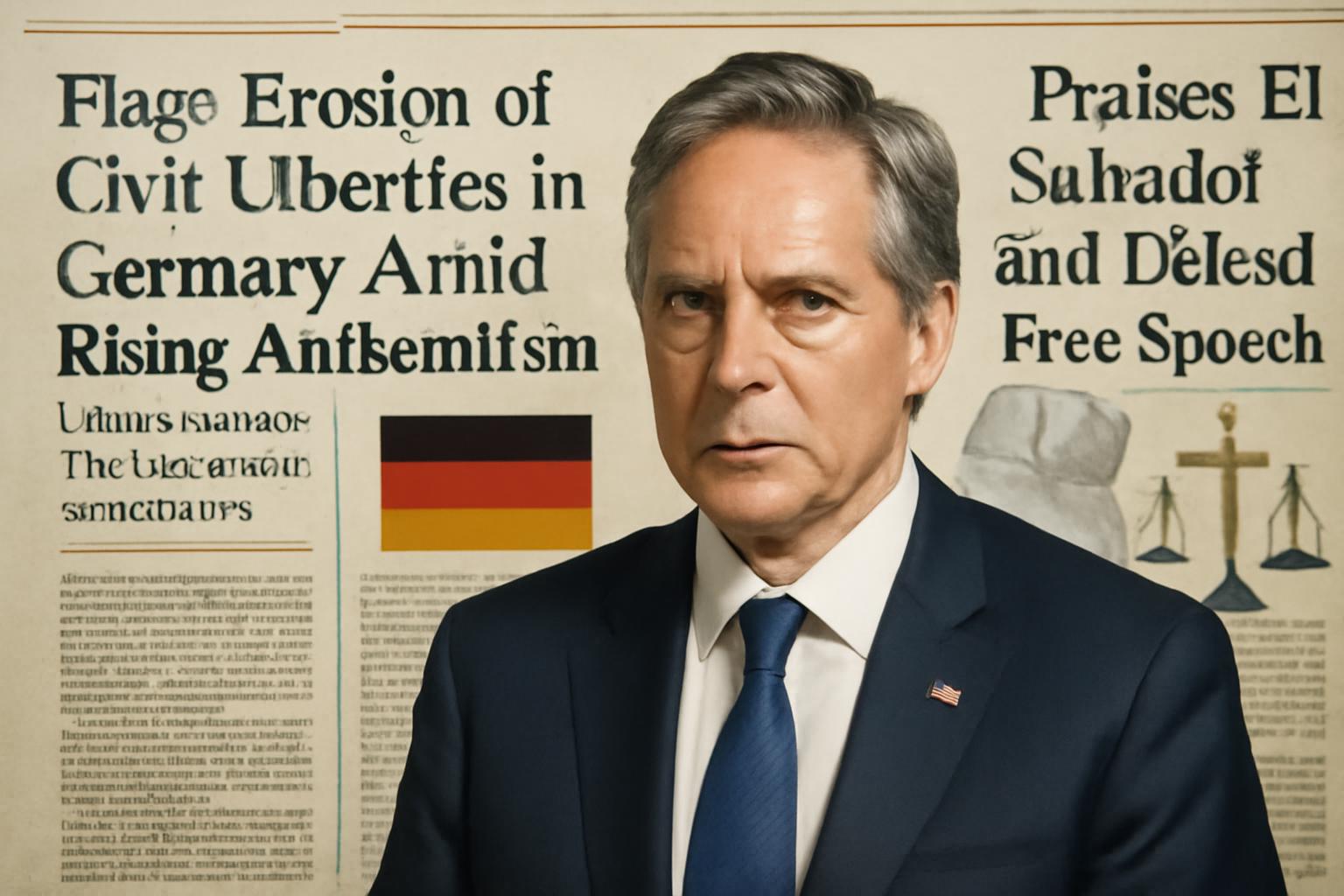A recent Washington assessment on Germany’s human-rights landscape portrays a decline in civil liberties over the past year. It notes that although the Basic Law protects press freedom and freedom of speech, the state has constrained groups deemed extremist in line with national law, leading to arrests or convictions for incitement to racial hatred and for praising or denying the Holocaust, though specific cases are not named. The document reports a sharp rise in antisemitic crimes in the first nine months of 2024 and suggests authorities overweight the fight against right-wing extremism at the expense of addressing underlying causes. It cites research claiming that mass immigration from Syria, Afghanistan, and Turkey correlates with higher antisemitic attitudes among newcomers. The tone reflects familiar U.S. criticisms voiced at international venues such as the Munich Security Conference and notes Chancellor Merz’s rejection of outside interference. In a broader comparative note, the report contrasts Germany with El Salvador, praising the latter and illustrating what the authors perceive as selective, politically driven judgments across countries.
What a sharp reminder it is that liberal order stands or falls not by power or punishment but by the stubborn and unglamorous discipline of principles. Freedom of expression is not a privilege granted to a favored society by the benevolent will of leaders; it is the very mechanism by which knowledge disperses, errors are corrected, and novelties of truth emerge. To permit the state to draw a line around “extremism” and then to police the boundaries with penalties is to invite the creeping confiscation of disagreement. Once the claim is made that certain opinions threaten public order and thus must be restrained, the door swings wide to the regulation of what can be said, by whom, and in what forum. The danger is not merely the suppression of unpopular views but the creation of an instrument by which rulers can shape culture to their own preference, under the pretext of safeguarding peace.
Moreover, to frame antisemitism as a derivative of immigration while treating the root causes as a matter of policy design is to mistake a complex social phenomenon for a problem awaiting managerial solution. Society does not yield to centralized adjustment of attitudes through law. It grows through competition of ideas, through institutions that channel disagreement into learning, and through a marketplace of beliefs where truth earns its living in the open light of discussion. The insistence on correlating demographic change with shifts in prejudice risks turning policy into a moralizing project that justifies more surveillance, more control, and more paternalism—precisely the sort of intervention that corrodes the very freedoms it claims to defend.
Germany’s Basic Law is not a mere historical artifact; it is a living restraint on power, a guard against the tyranny of those who would rather engineer harmony than secure liberty. To treat liberty as a variable to be balanced against a supposed security dividend is to mistake the very architecture of a free society. If the price of peace is the suppression of disagreement, the price is too dear; if the price of liberty is discomfort, then the discomfort is the good of civilization, for it is through dissent that errors are exposed and humane order refined. The juxtaposition of Germany with El Salvador in such a document, while illuminating selective judgments, also exposes a universal danger: when external assessments presume to grade nations by moral scoring, they risk replacing principled scrutiny with geopolitical convenience. The true measure of human rights is not a tally of arrests or a verdict on who wrowns under what banner, but the steadfast maintenance of rule of law, the frugal use of power, and the faith that free discussion will, over time, soften hatred and widen the circle of liberty for all.
